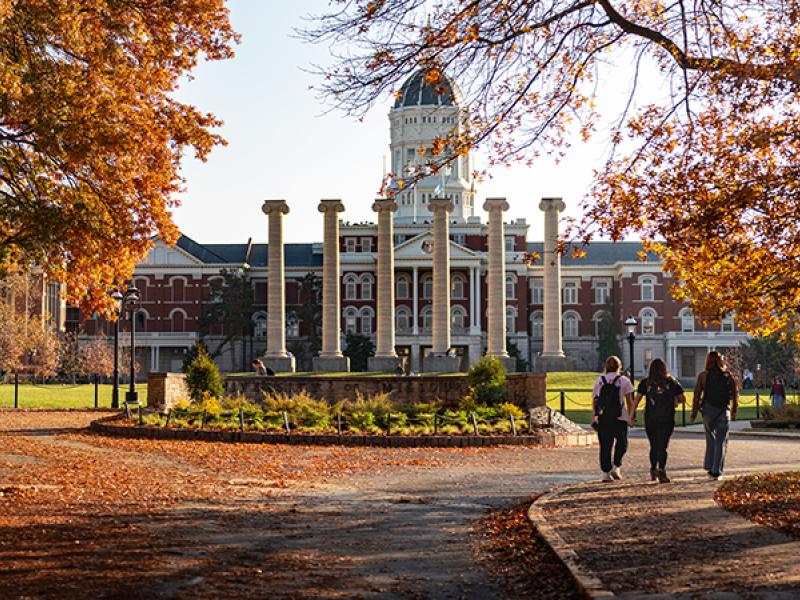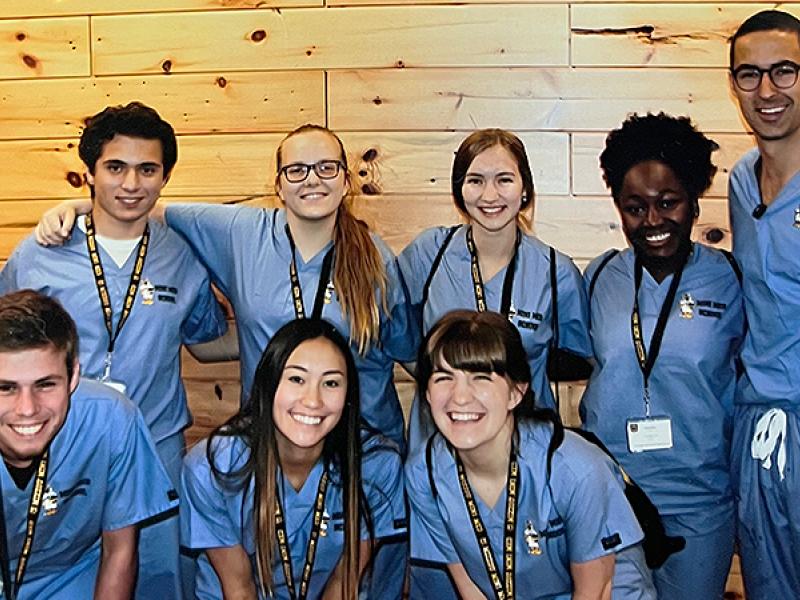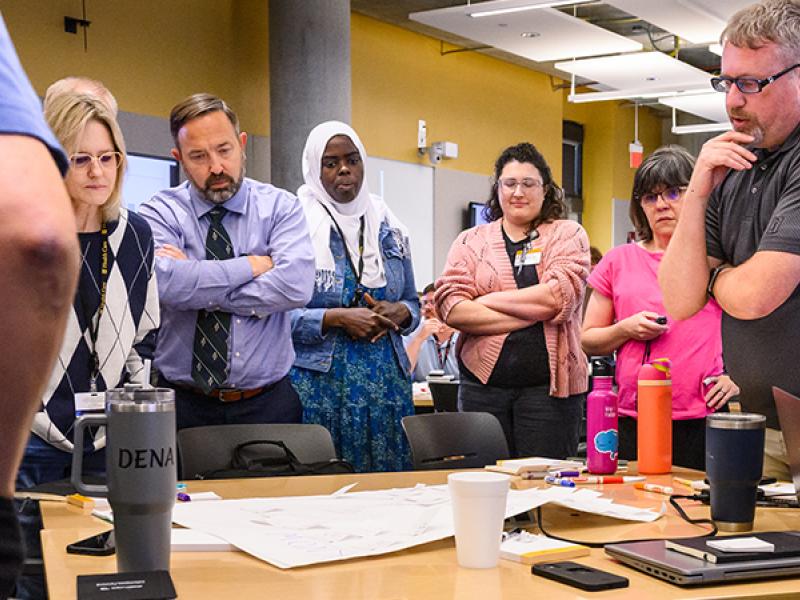The preclerkship curriculum has a focus on patient care and clinical experiences that broaden and deepen classroom learning. Year one (M1) and year two (M2) each consists of four nine-week blocks. Weeks one through eight are for learning. Evaluation occurs during week nine, and week 10 is a break.
Each block has two components:
- Basic Science & Patient-based Learning (BSci/PBL): In this component, students work through one authentic clinical case each week in small groups with a faculty facilitator, who is not a content expert but guides the group as they work through the case seeking a diagnosis and patient care plan. Known as patient-based learning, this style of medical education integrates basic science, clinical science and the humanistic qualities of medicine, instilling in students the importance of providing effective patient-centered care. BSci/PBL features about 10 hours of patient-based learning and about 10 hours of traditional teaching (i.e. lectures) each week.
- Introduction to Patient Care (IPC): Themes change with each block and focus on clinical skills, including history taking and physical examination; psychosocial issues; and increasing the students’ understanding of epidemiology, diagnostic tests and psychopathology. The primary learning strategies also emphasize small-group learning with supporting lectures and laboratory experiences.
M1 – First Year
In the first year, students take blocks on a variety of topics, including the structure and the function of the human body, basic doctoring, biopsychosocial aspects of medicine, and clinical epidemiology and preventative medicine.
Ambulatory Clinical Experience (ACE) is also required during two blocks (or two out of three available: blocks 2, 3, & 4). During ACE, each student spends a half-day three times per block with a role-model faculty or community physician-preceptor.
M2 – Second Year
In the second year, students take blocks that address pathophysiology, diagnostic tests and medical decisions, psychopathology and behavioral medicine, the clinical practicum, and the doctor as a person.
Advanced Physical Diagnosis (APD) is also required during the final three blocks. Students are assigned to a clinician mentor for the entire academic year. Times and frequency of meetings are at the discretion of the faculty member and the students; however, it is recommended that they meet at least twice each month. The emphasis of this experience is on history and physical exam skills and clinical reasoning.
M1 and M2 students also take Contemplating Medicine, Patients, Self and Society (COMPASS). Faculty-facilitated small-group sessions occur throughout all four years of undergraduate medical education and address topics related to professional formation.
Additionally, two half-days each week are protected time for independent or student-directed learning. No faculty-initiated activities may be scheduled.
It is anticipated that medical students will be present and actively engaged in all activities of each block. The expectation is that students will not have any absences except in unusual and specific situations. For more information, see the absence policy.





